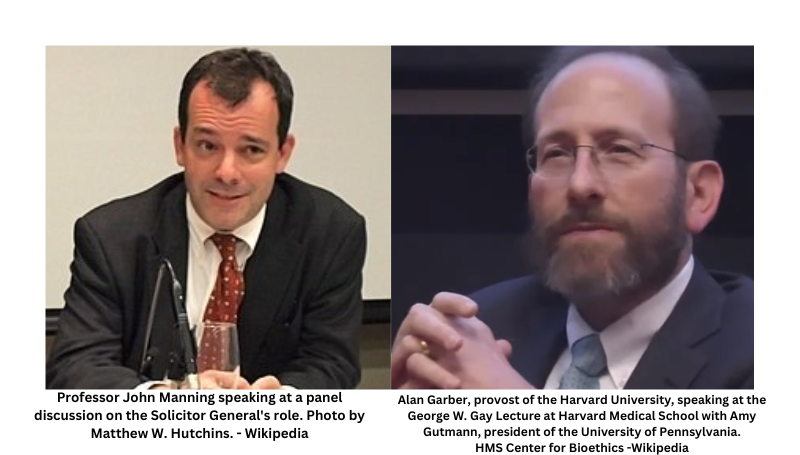Jessica McCann, The Harvard Gazette, May 28, 2024
“… we now live in a world of extreme political polarization. And that means both that people tend to react to University statements (again, intact or distorted) in a polarized way, and also put pressure on the University to speak or not speak in polarized ways.”
In April, interim President Alan M. Garber and interim Provost John F. Manning announced two University-wide initiatives to explore how best to cultivate and reinforce open inquiry, constructive dialogue, and academic freedom on campus. The first, the Open Inquiry and Constructive Dialogue Working Group is examining how to nurture and support engagement across differing viewpoints in Harvard’s teaching, learning, and dialogue. The second, the Institutional Voice Working Group, has taken up the more specific question of whether and when Harvard as a University should speak on matters of social and political significance and who should be authorized to speak for the institution as a whole. On Tuesday, Garber, Manning, and the deans of Harvard’s Schools announced that they had accepted the working group’s proposed statement of principles.
The Institutional Voice Working Group began its work by conducting a broad review of the types of public statements that Harvard and peer institutions have made in recent years. It also invited community feedback. The group has engaged in extensive outreach to members of the Harvard community, conducting a survey, soliciting input via email, and hosting more than 30 virtual and in-person listening sessions. Discussions covered the criteria by which the University and its various units should make official statements about public matters, the rationale behind these criteria, and the consequences that might arise for Harvard and its community when they do so.
The Gazette spoke with co-chairs Noah Feldman and Alison Simmons about the working group’s report. Feldman is the Felix Frankfurter Professor of Law at Harvard Law School and chair of Harvard’s Society of Fellows. Simmons is the Samuel H. Wolcott Professor of Philosophy and faculty co-director, Embedded EthiCS, in the Faculty of Arts and Sciences. The interview has been edited for clarity and length. … [To read the full article, click here]


